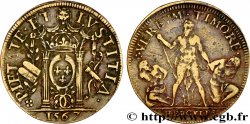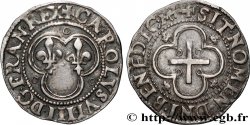Live auction - bry_967487 - CHARLES IX Essai du denier tournois en argent n.d. Lyon
Чтобы принять участие в торгах, вы должны войти в систему и стать подтвержденным участником аукциона. Войдите, чтобы сделать ставку. Ваш аккаунт будет подтвержден в течение 48 часов. Не ждите до закрытия торгов, чтобы зарегистрироваться.Сделав ставку на данный товар, вы вступаете в юридическое соглашение на покупку выбранного товара и нажатием кнопки «Сделать ставку» подтверждаете принятие вами условий интернет-аукционов cgb.fr.
Ставка может бить сделана только в полном эквиваленте евро. Торги закроются согласно времени, указанному в описании товара, все ставки, сделанные после закрытия торгов, учитываться не будут. Не следует откладывать предложение вашей ставки до последнего момента, так как система может не успеть обработать вашу заявку, и ваша ставка не будет принята. Более детальную информацию вы найдёте здесь: FAQ по интернет-аукционам.
Все ставки победителей подлежат комиссии 18%.
Все ставки победителей подлежат комиссии 18%.
| Оценить : | 2 200 € |
| Цена : | Нет ставки |
| Максимальная предлагаемая цена : | Нет ставки |
| Конец торгов : | 10 December 2024 16:04:03 |
Тип Essai du denier tournois en argent
Дата: n.d.
Монетный двор / Город: Lyon
Металл: silver
Диаметр: 19 mm
Ориентация осей монеты: 1 h.
Вес: 1,29 g.
Редкость: R3
Комментарии о состоянии
Cet essai est frappé sur un flan large et légèrement voilé et irrégulier. Patine grise
Ссылки в каталоге: :
Происхождение:
Monnaie de même coin de revers que le n° 2800 bis de la collection Marchéville et que l’exemplaire vendu dans MONNAIES VII, n° 1211. Monnaie provenant de la fameuse collection Paul Bordeaux, n° 1023
Лицевая сторона
Аверс: легенда: + CAROLVS. VIII[I]. D: G. FRAN. REX.
Аверс: описание: Deux lis dans un double trilobe cantonné à chaque angle d'un annelet.
Аверс: перевод: (Charles IX, par la grâce de Dieu, roi de France et de Navarre).
Обратная сторона
Реверс: легенда: + SIT. NOMEN. DNI. BENEDIC. (MM) (MG).
Реверс: Описание: Croix dans un double quadrilobe annelé cantonné de quatre trèfles annelés.
Реверс: перевод: (Béni soit le nom du Seigneur).
Комментарий
Cette monnaie à la gravure très bien soignée et d'un très haut titre est un essai pour un denier tournois de Charles IX dont le type ne fut jamais adopté. L’hypothèse d’un exemplaire provenant d’un treizain de mariage n’est toutefois pas à exclure.








 Cообщить об ошибке
Cообщить об ошибке Распечатать страницу
Распечатать страницу Отправить мой выбор
Отправить мой выбор Задать вопрос
Задать вопрос Consign / sell
Consign / sell
 Информация
Информация










